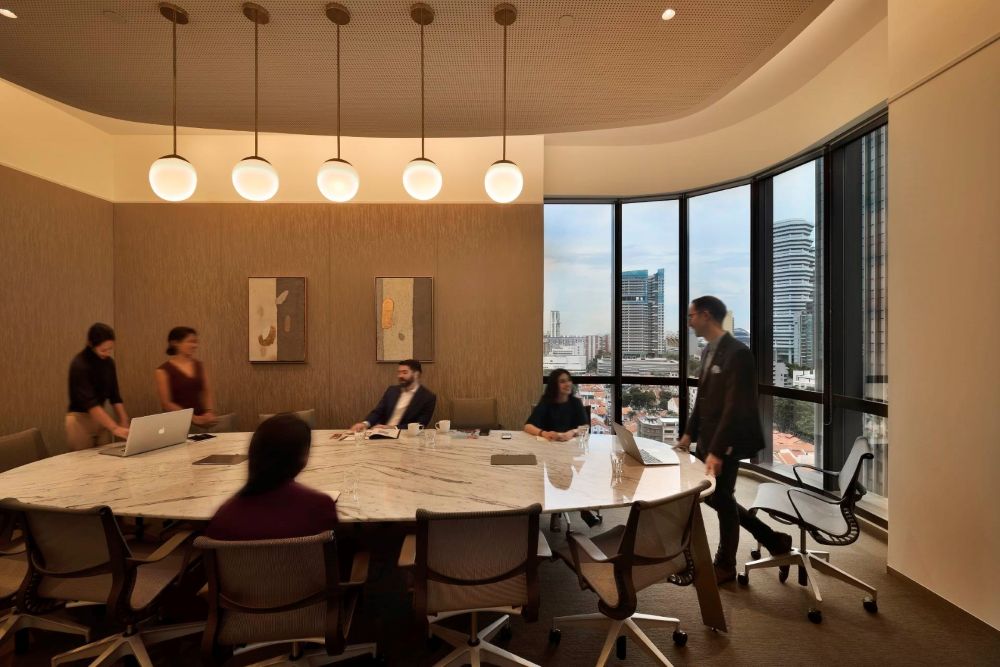It's hardly a surprise these days to find your company expanding its horizons across the region. With Singapore being a central hub for business in Asia, the likelihood of your organisation setting up shop here is pretty high. Next day, you've been tapped on the shoulder – relocation to Singapore is on the cards.
Well, you've come to the right place. This guide will walk you through the ins and outs of employee relocation, specifically focusing on your upcoming move.
What is Employee Relocation, and What Does It Mean?
Simply put, employee relocation is the process where your company transfers you, an employee, to a new work location that necessitates a change of residence. This isn't just a simple change of office within the same building; it involves a geographical move that requires you to establish a new home.
The reasons for relocation can vary widely, from company expansion into new markets and the need for specific skill sets at different locations, to restructuring and the consolidation of teams.
This process is usually categorised into a few different types, each with its own implications and levels of support from the employer, such as:
- Permanent Relocation: This signifies a long-term or indefinite move to a new work location. The expectation is that this will become your primary place of work and residence for the foreseeable future. This type often involves more comprehensive relocation assistance.
- Temporary Relocation: This involves a move for a specific, defined period, often tied to a particular project, assignment, or the need to cover a staffing gap. While you'll be living and working elsewhere, there's an expectation of returning to your original location at the end of the assignment.
- Commuter Relocation: This is less about a full residential move and more about facilitating an employee's commute to a work location that is a significant distance from their current home. This might involve assistance with travel costs or temporary accommodation during the work week.
- International Relocation: This, as the name suggests, involves moving an employee to a new country to work. This is the most complex type, often involving visas, immigration processes, cultural adjustments, and significant logistical planning for both the employee and their family.
In your case, you've been assigned an international relocation – a move to the vibrant island nation of Singapore. This means you'll be navigating a new country, culture, and potentially a different way of life, alongside your new professional responsibilities. Understanding the scope and implications of this international move is the first crucial step in the relocation process.
What Is the Justification for Employee Relocation?
Rest assured, being asked to relocate staff, including yourself, isn't a sign that you're being sidelined or forgotten by your company. In fact, it often signifies the opposite – your skills and expertise are valued in a new location. Your company might be looking at employee relocation through several strategic lenses:
- Business Expansion: The company might be opening a new office or expanding its operations into Singapore, requiring experienced employees to establish and lead the new team.
- Filling Skill Gaps: There might be a shortage of specific skills or expertise in the Singapore office that you possess. Your relocation ensures those needs are met.
- Career Advancement: Relocation can be a pathway for career growth and development, offering you new challenges, responsibilities, and opportunities for promotion in the Singapore context.
- Strategic Alignment: Your role might be more crucial or better aligned with the strategic goals of the Singaporean operations.
- Project Needs: A specific project in Singapore might require your unique skills and experience for a defined period.
- Global Mobility: For larger multinational companies, employee relocation is a common practice for developing talent and fostering a global perspective within the organisation.
Benefits of Employee Relocation (for You)
Relocating to Singapore can offer a wealth of personal and professional benefits for you. Think of it as an exciting chapter in your career and life:
- Career Growth: As mentioned, relocation can open doors to new roles, responsibilities, and opportunities for advancement within the company's Singapore operations.
- Skill Development: You'll likely gain new skills and experiences by working in a different market and potentially with a diverse team in Singapore.
- Cultural Enrichment: Singapore is a melting pot of cultures, offering a unique opportunity to immerse yourself in a new environment, learn new customs, and broaden your horizons.
- Networking Opportunities: You'll build a new professional network in Singapore, which can be invaluable for your career in the long run.
- Personal Growth: Adapting to a new country and culture can foster significant personal growth, resilience, and adaptability.
- Potential Financial Benefits: Depending on your company's relocation package, you might receive financial assistance to cover moving costs, temporary accommodation, and even a relocation allowance to help you settle in Singapore.
So You’re Relocating to Singapore. What Employee Benefits Are You Entitled to?
1. Relocation Expenses
When your company asks you to undertake an employee relocation to Singapore, it’s natural to wonder what kind of support you’ll receive to ease the transition. According to the Inland Revenue Authority of Singapore (IRAS), you will likely be provided with cash allowances and reimbursements to cover a range of costs and expenses associated with your move and initial daily living. Typically, you’ll need to keep detailed records and receipts to claim these relocation expenses according to your company’s policies.
Here are some common types of relocation expenses that your company might cover:
- Cost of airfare for you, your family, and even your pets to travel to Singapore.
- Freight and storage charges for moving your personal belongings and household goods.
- Cost of temporary accommodation upon arrival in Singapore before you secure permanent housing (e.g., hotel or serviced apartment).
- Settling-in expenses to help you get established (e.g., initial bedding, kitchen appliances, broadband subscription, and enrolment in expatriate immersion programmes).
That said, you generally won’t be able to claim expenses that are deemed personal in nature or not directly related to the relocation, such as the cost of purchasing a vehicle or entertainment expenses.
Home Leave Passages
Depending on your employment contract and your company’s relocation policy, you might also be entitled to home leave passages. These are typically provided to expatriate employees to allow them to return to their home country periodically during their assignment in Singapore. The frequency of these passages can vary, often depending on the length of your assignment and your family situation.
It's important to note that starting from the Year of Assessment (YA) 2018, home leave passages provided to expatriate employees, their spouses, and children are generally fully taxable in Singapore. However, there's a key exception: leave passages provided to a foreigner and their family when taking up their first employment in Singapore, or upon leaving Singapore after the termination of their employment, are not subject to income tax.
Your Smooth Transition to Singapore

The Work Project
Relocating to a new country for work is a significant undertaking, but with the right support and understanding of what to expect, your move to Singapore can be a rewarding experience. Familiarising yourself with the relocation benefits and the tax implications will help ensure a smoother transition.
To further ease your move and provide a flexible workspace in Singapore, consider The Work Project. Explore our coworking space in Singapore and discover dedicated desk space options that can serve as your professional home away from home.






